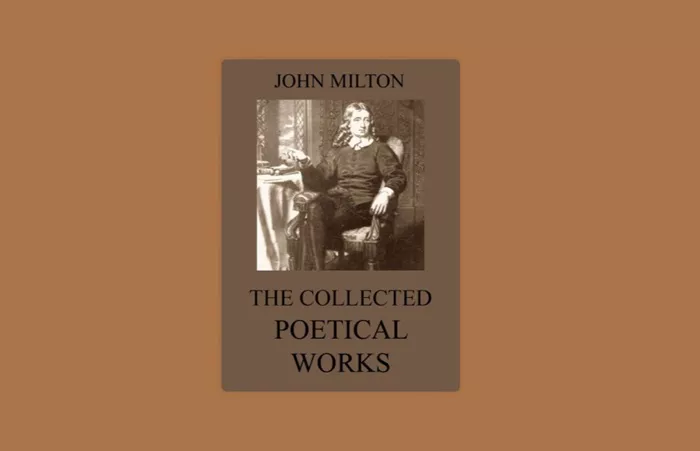Welcome to Poem of the Day – On the New Forcers of Conscience Under the Long Parliament by John Milton
John Milton, one of the most influential poets in English literature, is best known for his epic poem Paradise Lost. However, his shorter works, such as On the New Forcers of Conscience Under the Long Parliament, also hold a significant place in literary history. This poem, written in 1646, responds to the religious and political climate of the time, particularly the actions of the Long Parliament. In this article, we will explore the meaning of Milton’s poem and its context, examining his use of language and themes.
On the New Forcers of Conscience Under the Long Parliament Explanation
The Historical Context of the Poem
To understand On the New Forcers of Conscience Under the Long Parliament, it is essential to consider the historical events that inspired it. The Long Parliament was a period in the English Civil War (1640–1660) when the Parliament, rather than the monarchy, held significant power. During this time, there were efforts to enforce strict religious reforms. The Puritans, led by Parliament, sought to impose their interpretation of the Christian faith on the country, which included suppressing various forms of religious expression. Milton, a staunch advocate for individual liberty, wrote this poem as a critique of those who sought to force conformity in matters of faith.
An Overview of the Poem
The poem is a short but powerful statement of Milton’s views on religious freedom and the dangers of censorship. Milton uses the metaphor of “new forcers of conscience” to describe those in power who sought to impose their own religious beliefs on others. The phrase “under the Long Parliament” situates the poem within the specific political context of the English Civil War, when Puritan leaders were trying to establish their version of religious orthodoxy.
The speaker of the poem warns that these religious enforcers, who are presented as hypocrites, aim to suppress personal freedom and conscience. Milton suggests that forcing someone to conform to a particular set of beliefs, particularly through legal or political means, is an act of tyranny. He believes that true religion cannot be imposed but must be a matter of personal choice and conscience.
The Poem’s Themes
Religious Freedom and Conscience: At the heart of the poem lies the theme of religious freedom. Milton fiercely defends the right of individuals to choose their own beliefs, free from external interference. The “new forcers” in the poem represent those who try to restrict this freedom, using power and influence to enforce conformity. Milton suggests that coercion in matters of faith is not only wrong but undermines the very essence of religion.
The Dangers of Political Power Over Religion: The poem also addresses the dangers of mixing religion with political power. Milton was deeply concerned about the role of government in dictating religious practice. He viewed the actions of the Long Parliament as a dangerous attempt to control not just the political realm but also the spiritual lives of citizens. Milton’s argument implies that religion, in its true form, must be a matter of personal conviction, not political decree.
Hypocrisy and Tyranny: Another key theme in the poem is hypocrisy. Milton criticizes those who pretend to act in the name of religion while engaging in tyrannical behavior. He sees these new religious enforcers as no better than the monarchs they replaced, who were accused of imposing their own will on the people. The poem suggests that, in their zeal to promote their version of Christianity, the Puritans were betraying the core values of the faith, such as compassion and freedom.
Milton’s Use of Language and Style
Milton’s language in On the New Forcers of Conscience Under the Long Parliament is both powerful and poetic. He employs rhetorical devices such as irony, metaphor, and allusion to make his points. The phrase “new forcers of conscience” is a particularly striking metaphor, as it conveys the idea of external forces trying to control something as personal as one’s beliefs. The use of the word “conscience” highlights the theme of individual liberty, emphasizing that faith is an internal matter that cannot be dictated by external authorities.
Milton also uses contrast to emphasize the dangers of religious coercion. The poem suggests that true religion is voluntary and personal, not something that can be imposed or forced. This contrast serves to highlight the hypocrisy of those who, under the guise of promoting religious orthodoxy, act in ways that violate the very principles of liberty and conscience they claim to uphold.
Conclusion
John Milton’s On the New Forcers of Conscience Under the Long Parliament remains a powerful defense of religious freedom and a critique of political interference in spiritual matters. Through his eloquent use of language and sharp critique of the political climate of his time, Milton delivers a timeless message about the importance of personal conscience and the dangers of forcing conformity in matters of faith. The poem continues to resonate today, reminding readers of the value of individual liberty and the need to protect freedom of thought and belief.

